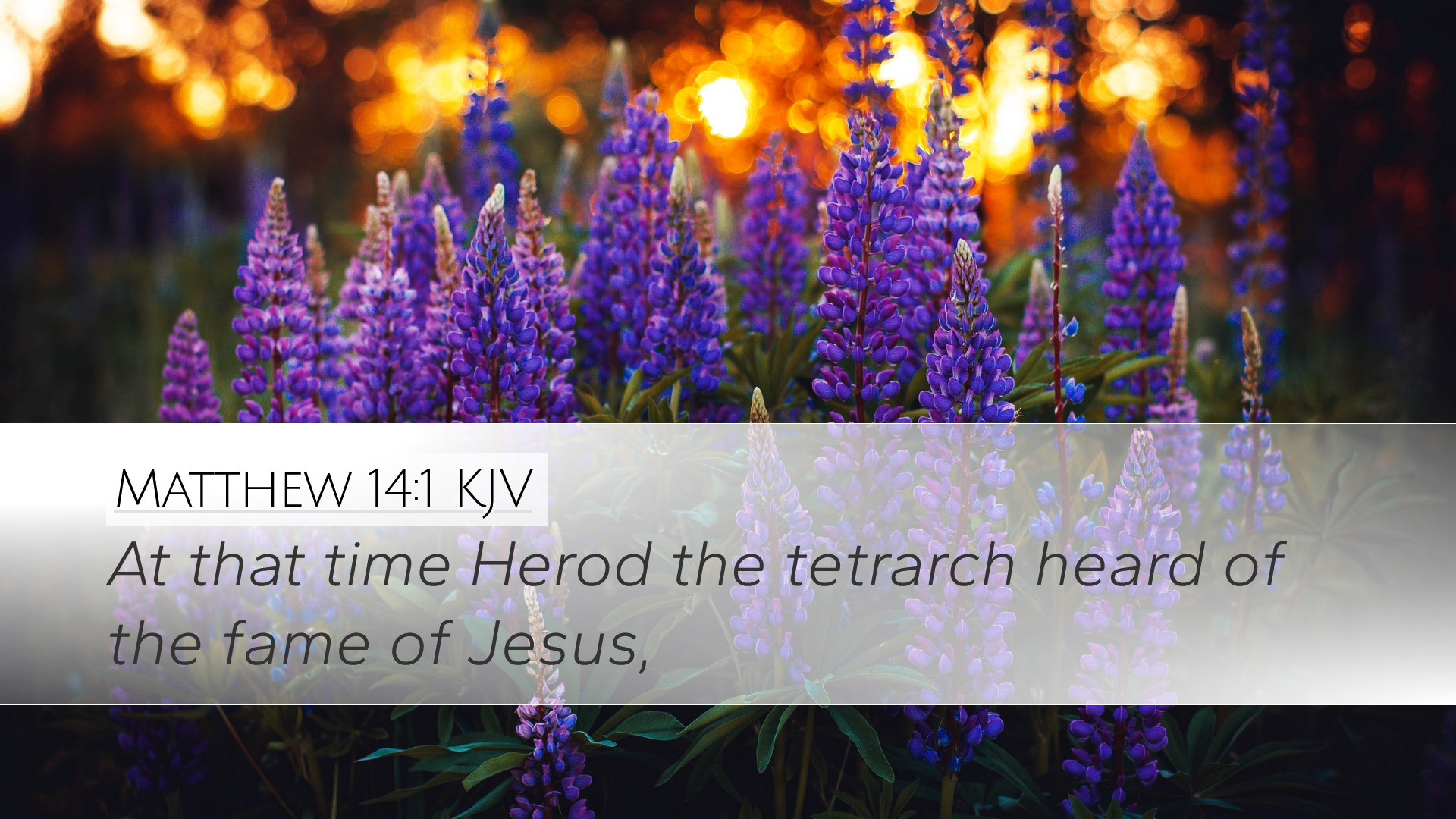Commentary on Matthew 14:1
Matthew 14:1 states: "At that time Herod the tetrarch heard of the fame of Jesus." This verse introduces a pivotal moment in the ministry of Jesus, as it sets the stage for a significant encounter between the earthly authority of Herod and the divine mission of Christ.
Contextual Background
Herod Antipas, referred to as the tetrarch, was the son of Herod the Great. He governed Galilee and Perea and is often remembered for his involvement in the events surrounding the death of John the Baptist. This context is crucial for understanding the implications of this verse in the narrative of Jesus' ministry.
Verse Analysis
In the phrase “At that time,” there is an indication that this moment is chronologically connected to previous events, particularly the ministry and the miracles of Jesus that have been spreading through Judea and beyond.
- The Famed Ministry of Jesus: The term "fame" signifies that Jesus had garnered significant attention among the people, which suggests that His teachings, miracles, and healings were well-known. As Matthew Henry notes, this fame was not just about miraculous works but also about the authoritative nature of His teachings, which challenged the status quo.
- Herod's Curiosity: The news reaching Herod reflects not only the interest of the common people but also the intrigue of political leaders. As Adam Clarke elucidates, Herod may have been motivated by both curiosity and fear, as news of Jesus' power could be seen as a potential threat to his rule.
Theological Implications
This verse emphasizes the tension between the kingdoms of this world and the kingdom of God. Herod's authority is juxtaposed with Jesus' divine mission, prompting reflections on the nature of power and authority. The recognition of Jesus by Herod serves as a reminder that earthly rulers cannot remain indifferent to the workings of the divine.
Implications for Ministry
For pastors and theologians, this verse calls for a discernment of how the ministry of Jesus interacts with contemporary political and social structures. It asks the question of how modern-day leaders perceive the Church and its impact on society.
Historical and Cultural Considerations
The verse must also be viewed against the backdrop of Jewish history and the Roman occupation. The Jewish people were longing for a Messiah, and the rising of Jesus’ fame among the populace indicated a shift that could threaten the established order.
Insights from Public Commentaries
- Albert Barnes, in his exposition, emphasizes the contrast between Herod's political concerns and Jesus' spiritual mission. While Herod is focused on maintaining his power and reputation, Jesus’ objective transcends earthly governance and addresses the needs of humanity.
- Matthew Henry also draws attention to the moral implications of Herod's rule, suggesting that leaders must evaluate how they respond to divine truth and authority. The rising fame of Jesus posed a threat to Herod, as acceptance of Jesus could undermine his political security.
Practical Applications
For those engaged in preaching and teaching, this passage presents an opportunity to explore the implications of how spiritual authority often conflicts with human authority. It invites a deeper examination of what it means to live in light of Christ's teachings in a world that often values power and influence over humility and truth.
Concluding Thoughts
In summary, Matthew 14:1 serves as a significant entry point into the life and ministry of Jesus, providing rich theological and practical insights. It reminds us of the ongoing interplay between faith and power, and encourages us to reflect on how we, as representatives of Christ, engage with the world around us.


